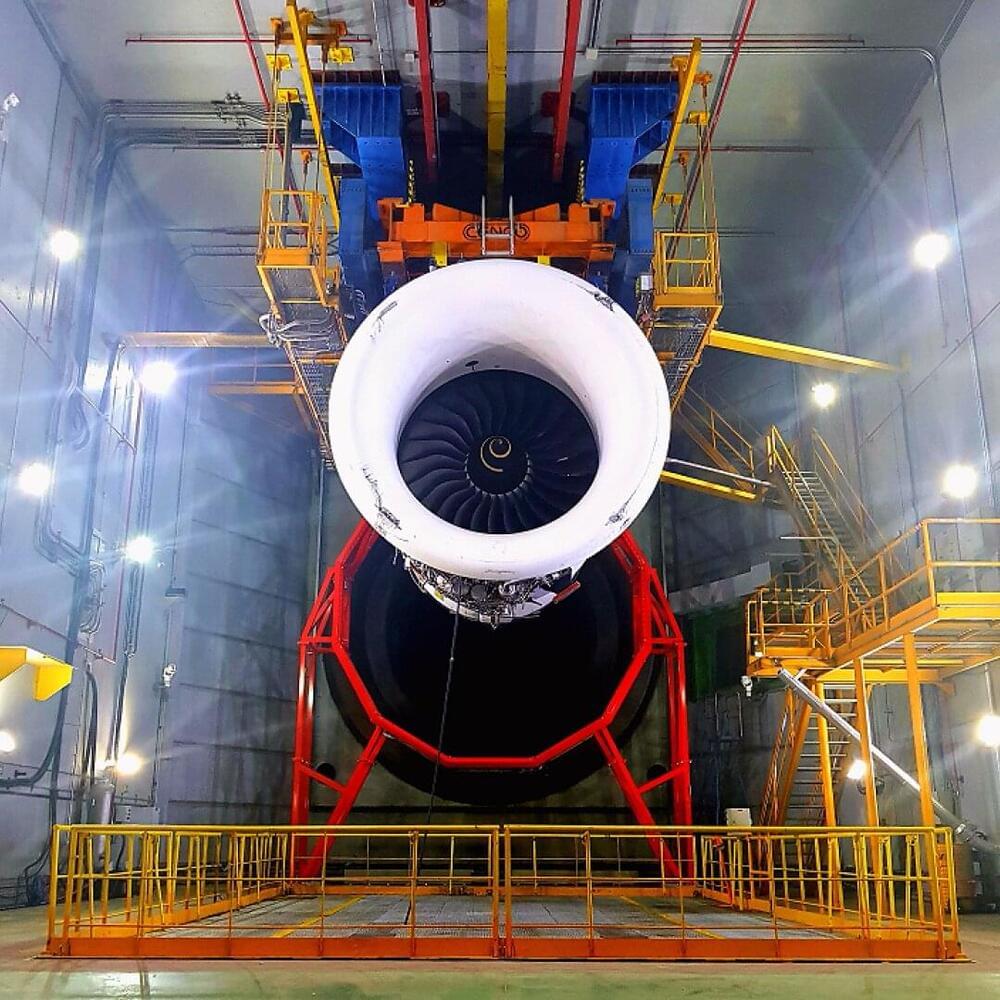Researchers have used a novel near-infrared light imaging technique to capture the first cross-sectional images of carbon dioxide in the exhaust plume of a commercial jet engine. This new state-of-the-art technology could help accelerate turbine combustion research aimed at developing engines and aviation fuels that are more environmentally friendly.
“This approach, which we call chemical species tomography, provides real-time spatially resolved information for carbon dioxide emissions from a large-scale commercial engine,” said research team leader Michael Lengden from the University of Strathclyde in the U.K. “This information has not been available before at this industrial scale and is a big improvement over the current industry-standard emissions measurement, which involves taking gas from the exhaust to a gas analyzer system in a different location.”
The researchers report the new research in Applied Optics. Chemical species tomography works much like the X-ray-based CT scans used in medicine, except that it uses near-infrared laser light tuned to the absorption wavelength of a target molecule and requires very fast imaging speeds to capture the dynamic processes of combustion.
